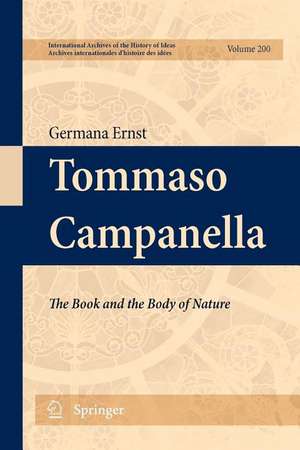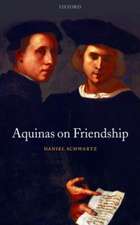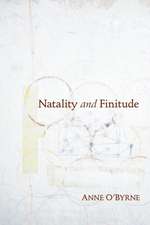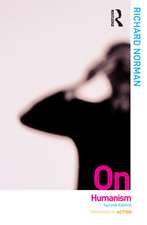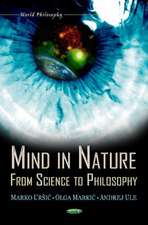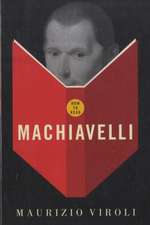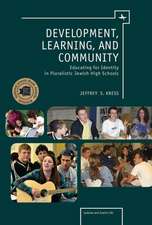Tommaso Campanella: The Book and the Body of Nature: International Archives of the History of Ideas Archives internationales d'histoire des idées, cartea 200
Autor Germana Ernsten Limba Engleză Paperback – 5 mai 2012
| Toate formatele și edițiile | Preț | Express |
|---|---|---|
| Paperback (1) | 576.02 lei 38-44 zile | |
| SPRINGER NETHERLANDS – 5 mai 2012 | 576.02 lei 38-44 zile | |
| Hardback (1) | 645.79 lei 6-8 săpt. | |
| SPRINGER NETHERLANDS – 18 mar 2010 | 645.79 lei 6-8 săpt. |
Din seria International Archives of the History of Ideas Archives internationales d'histoire des idées
- 24%
 Preț: 679.97 lei
Preț: 679.97 lei - 18%
 Preț: 728.43 lei
Preț: 728.43 lei -
 Preț: 380.25 lei
Preț: 380.25 lei -
 Preț: 382.18 lei
Preț: 382.18 lei -
 Preț: 382.36 lei
Preț: 382.36 lei -
 Preț: 385.84 lei
Preț: 385.84 lei -
 Preț: 381.43 lei
Preț: 381.43 lei -
 Preț: 380.45 lei
Preț: 380.45 lei - 18%
 Preț: 1218.35 lei
Preț: 1218.35 lei -
 Preț: 379.68 lei
Preț: 379.68 lei -
 Preț: 399.29 lei
Preț: 399.29 lei - 18%
 Preț: 950.03 lei
Preț: 950.03 lei -
 Preț: 385.08 lei
Preț: 385.08 lei - 18%
 Preț: 953.20 lei
Preț: 953.20 lei - 15%
 Preț: 648.24 lei
Preț: 648.24 lei - 15%
 Preț: 641.03 lei
Preț: 641.03 lei - 18%
 Preț: 954.93 lei
Preț: 954.93 lei - 18%
 Preț: 944.19 lei
Preț: 944.19 lei - 15%
 Preț: 643.00 lei
Preț: 643.00 lei - 18%
 Preț: 1825.40 lei
Preț: 1825.40 lei - 18%
 Preț: 1224.54 lei
Preț: 1224.54 lei - 15%
 Preț: 644.63 lei
Preț: 644.63 lei - 15%
 Preț: 633.53 lei
Preț: 633.53 lei - 15%
 Preț: 647.08 lei
Preț: 647.08 lei - 18%
 Preț: 1233.06 lei
Preț: 1233.06 lei -
 Preț: 390.25 lei
Preț: 390.25 lei - 18%
 Preț: 945.92 lei
Preț: 945.92 lei - 18%
 Preț: 951.91 lei
Preț: 951.91 lei - 18%
 Preț: 1219.63 lei
Preț: 1219.63 lei - 15%
 Preț: 638.24 lei
Preț: 638.24 lei - 18%
 Preț: 1223.43 lei
Preț: 1223.43 lei
Preț: 576.02 lei
Preț vechi: 748.07 lei
-23% Nou
Puncte Express: 864
Preț estimativ în valută:
110.23€ • 119.70$ • 92.60£
110.23€ • 119.70$ • 92.60£
Carte tipărită la comandă
Livrare economică 18-24 aprilie
Preluare comenzi: 021 569.72.76
Specificații
ISBN-13: 9789400731752
ISBN-10: 9400731752
Pagini: 296
Ilustrații: XII, 281 p.
Dimensiuni: 155 x 235 x 16 mm
Greutate: 0.42 kg
Ediția:2010
Editura: SPRINGER NETHERLANDS
Colecția Springer
Seria International Archives of the History of Ideas Archives internationales d'histoire des idées
Locul publicării:Dordrecht, Netherlands
ISBN-10: 9400731752
Pagini: 296
Ilustrații: XII, 281 p.
Dimensiuni: 155 x 235 x 16 mm
Greutate: 0.42 kg
Ediția:2010
Editura: SPRINGER NETHERLANDS
Colecția Springer
Seria International Archives of the History of Ideas Archives internationales d'histoire des idées
Locul publicării:Dordrecht, Netherlands
Public țintă
Professional/practitionerCuprins
Telesius me Delectavit.- From Naples to Padua: Encounters, Conflicts, Trials.- The Palace of Atlas.- Back to Naples and Calabria.- The Conspiracy.- Prophecy, Politics and Utopia.- In the Cave of Polyphemus.- Christian Unity.- New Heavens.- The New Encyclopedia of Knowledge.- The Disappointment of Liberty.- The Paris Years.
Notă biografică
Germana Ernst is professor of History of Renaissance Philosophy at the Third University of Rome. She studied at the University of Milan, graduating with a thesis on Campanella’s Apologia pro Galileo. She has written papers on early modern authors, such as Girolamo Cardano, Giordano Bruno, Giovanni Battista Della Porta, Giulio Cesare Vanini, and Galileo Galilei. Her main research activities, however, have been focused on Tommaso Campanella, on whom she has written three books together with many essays and articles dealing with ethics and politics, philosophy of nature, religion, natural magic, prophecy and astrology. She edited many published and unpublished works of Campanella, including Articuli prophetales (1977), Città del sole (Milano 1996), Monarchia di Spagna (Paris 1997), a collection of Lettere (Pisa-Roma 2000), and Opuscoli astrologici (Milano 2003). She has also managed to retrieve a number of texts that had been considered lost, including shorts works, letters and five political sonnets. Her most important discovery remains the autograph manuscript in Italian of Ateismo trionfato (2 vols., Pisa 2004), a text that inaugurated a project dedicated to the publication of a significant selection of Campanella's works by the publishers of the Scuola Normale Superiore of Pisa. Recently, Ernst published Campanella’s intellectual autobiography, De libris propriis et recta ratione studendi syntagma, together with an Italian translation (Pisa-Roma 2007) as well as a new annotated edition of Campanella's main work in the field of natural philosophy, Del senso delle cose e della magia (Roma 2007). The publication of a new comprehensive edition of Campanella's epistolary corpus, Lettere, is expected in 2009.
In 1995, together with Eugenio Canone (Lessico Intellettuale Europeo, CNR, Rome), Ernst founded Bruniana & Campanelliana, a journal dedicated torepresentatives of Renaissance philosophy and their times. From the 1980s onwards she participated in numerous international conferences and published many articles and reviews in international journals.
In 1995, together with Eugenio Canone (Lessico Intellettuale Europeo, CNR, Rome), Ernst founded Bruniana & Campanelliana, a journal dedicated torepresentatives of Renaissance philosophy and their times. From the 1980s onwards she participated in numerous international conferences and published many articles and reviews in international journals.
Textul de pe ultima copertă
A friend of Galileo and author of the renowned utopia The City of the Sun, Tommaso Campanella (Stilo, Calabria,1568- Paris, 1639) is one of the most significant and original thinkers of the early modern period. His philosophical project centred upon the idea of reconciling Renaissance philosophy with a radical reform of science and society. He produced a complex and articulate synthesis of all fields of knowledge – including magic and astrology. During his early formative years as a Dominican friar, he manifested a restless impatience towards Aristotelian philosophy and its followers. As a reaction, he enthusiastically embraced Bernardino Telesio’s view that knowledge could only be acquired through the observation of things themselves, investigated through the senses and based on a correct understanding of the link between words and objects. Campanella’s new natural philosophy rested on the principle that the books written by men needed to be compared with God’s infinite book of nature, allowing them to correct the mistakes scattered throughout the human ‘copies’ which were always imperfect, partial and liable to revisions. It is in the light of these principles that he defended Galileo’s right to read the book of nature while denouncing the mistake of those – be they Aristotelian philosophers or theologians – who wanted to stop him from carrying on his natural investigations. However, Campanella maintained that the book of nature, far from being written in mathematical characters, was a living organism in which each natural being was endowed with life and a degree of sensibility that was appropriate for its preservation and propagation. Nature as a whole was an organism in which each single part was directed towards the common good. This is the reason why Campanella thought that nature had to be regarded as an ideal model for any political organisation. Political structures were often ruled by injustice and violence precisely becausethey had departed from that natural model. This book charts Campanella’s intellectual life by showing the origin, development and persistence of some of the fundamental tenets of his thought.
Caracteristici
A comprehensive intellectual biography of an important and complex philosopher of the Renaissance A historical reconstruction of social and cultural relationships between the sixteenth and the seventeenth century A volume useful to clarify some philological and interpretative problems concerning modern editions and translations of Campanella’s texts Includes supplementary material: sn.pub/extras
